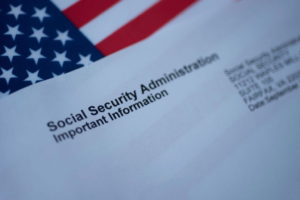
President Issues Sweeping Executive Order Affecting Refugees, Muslim Entries, and Sets Up New Screening Standards
Jan 31, 2017
Dallas, TX (Law Firm Newswire) January 31, 2017 – On January 27, 2017, President Donald Trump issued a sweeping executive order limiting refugee admissions for the current fiscal year.
The order will ban admission to the United States from Muslim majority countries, in addition to making other changes in an effort to stop foreign terrorists from entering the United States.
The executive order suspends all refugee admissions for 120 days and cuts the total refugee numbers which the United State will accept for this fiscal year to 50,000 from its previously set number of 110,000. It further suspends Syrian refugee admissions without limit until the President determines that refugee program changes have been made to admit Syrian refugees as being in the national interest.
For at least the next 90 days, the executive order bans the admission of citizens of Muslim majority countries which include Iran, Iraq, Somalia, Syria, Sudan and Yemen. Other countries may be added. The executive order requires no individualized finding of a security risk.
The executive order suspends consular authority to waiver interviews for nonimmigrant visa applicants seeking to renew their visas within 12 months of an identical visa application in the same classification. Previously, consular officers had to authority to waive such interviews.
The executive order requires the Department of Homeland Security (DHS), the Department of State (DOS), the FBI and other federal agencies to develop uniform screening standards for all immigration programs including evaluating a visa “…applicant’s likelihood of becoming a positively contributing member of society and the applicant’s ability to make contributions to the national interest…” in addition to meeting other requirements not provided for by statute.
In addition, the executive order requires the federal agencies involved to implement a biometric entry-exit system as an enhanced method to supplement the existing biometric entry system.
“The executive order will have an immediate negative impact on large numbers of innocent people, refugees who have waited for 2+ years for currently in-place background investigations protocol to conclude and who may no longer be able to be counted within the halved refugee quota for the current fiscal year, and those who must pass what appears to be a subjective test to comply with new screening procedures,” said Stewart Rabinowitz of the Dallas and Frisco law firm of Rabinowitz & Rabinowitz, P.C. “In addition, with the end of discretionary visa interview waiver for low risk, previously cleared visa applicants who apply within 12 months of their visa’s expiration, the new mandatory visa interview requirements will reduce visa processing to a crawl.”
Rabinowitz & Rabinowitz, P.C.
2591 Dallas Parkway, Suite 300
Frisco, TX 75034
Phone: 972.233.6200
By Appointment Only
Three Galleria Tower
13155 Noel Road, Suite 900
Dallas, TX 75240
http://www.rabinowitzrabinowitz.com
- Bipartisan bill introduced to protect DACA recipients
A bipartisan group of senators in this lame duck session of Congress has introduced legislation to protect undocumented young immigrants who were brought to the United States as children – a group whose status may be threatened if President-elect Trump cancels President Obama’s Deferred Action for Childhood Arrivals (DACA) program. Senators Lindsey Graham (R-S.C.) and … - United States Customs and Border Protection Issues its Border Security Report for 2016
On December 30, 2016, U.S. Customs and Border Protection Issued its Border Security Report for 2016. We attach a link to the report for your reference: https://www.cbp.gov/sites/default/files/assets/documents/2016-Dec/CBP-fy2016-border-security-report.pdf - Certain Individual Taxpayer Identification Number holders must renew their ITINS
Certain taxpayers will need to renew their Individual Taxpayer Identification Numbers (ITINs) beginning this fall, the IRS recently announced. ITINs are tax processing numbers that are issued to foreign nationals and others who do not qualify for Social Security numbers but have federal tax filing or reporting requirements. This includes some non-resident aliens, and dependents …




